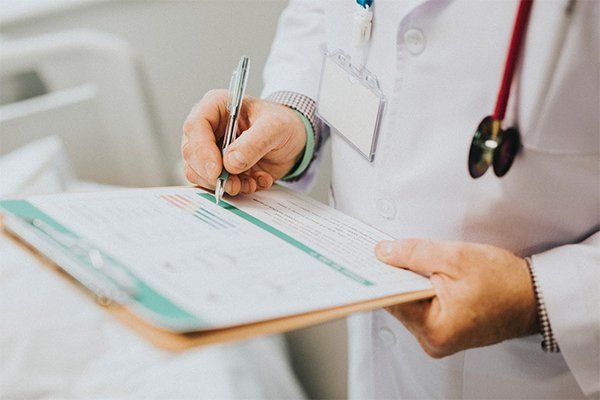Understanding Gastroesophageal Reflux Disease

The human digestive system is a complicated, multifaceted structure. It begins with your mouth, travels down the throat and esophagus into the stomach, then moves through the small intestine to the large intestine — or colon — and finally, ends at the rectum and anus. The liver, pancreas, and gallbladder also play a role in digestion.
Problems can occur at any point along the approximate 30 feet from beginning to end. One common issue is gastroesophageal reflux disease, or GERD, which affects about 20 percent of adults. This chronic condition often goes unrecognized, however, until it causes considerable trouble. Discover what you should know.
What Is Gastroesophageal Reflux Disease?
In between where the esophagus ends and the stomach begins sits a valve called the lower esophageal sphincter. This muscle is normally in a closed position, but it relaxes when we eat to allow food to pass from the esophagus to the stomach.
Sometimes, this valve doesn't function properly. When this occurs, stomach contents and the acids that break down food flow back into the esophagus. When this backup repeatedly occurs, chronic gastroesophageal reflux disease results.
What Causes Gastroesophageal Reflux Disease?
While no single known cause of GERD exists, certain factors often contribute to the condition. Obesity is a primary lifestyle factor in the development of GERD. Excess belly fat puts pressure on the stomach and other organs, compressing them in the abdominal cavity.
Another possible cause is the lower esophageal sphincter muscle may be weaker than it should be. This may be genetic, or the muscle may be damaged. Corrosive stomach acid that backs up into the esophagus can further damage the organ.
Smoking can also contribute to gastroesophageal reflux disease. Studies show that tobacco smoking changes the chemical makeup of saliva, which is normally rich in bicarbonate and offers protection against acid in the esophagus. Alcohol consumption may also play a role in gastroesophageal reflux disease. Research shows alcohol damages the inner lining of the esophagus, called the mucosa.
A hiatal hernia may also occur in conjunction with GERD. This is where part of the stomach protrudes through a gap in your diaphragm. The diaphragm is a muscle that houses the esophagus in the chest and separates it from the stomach in the abdomen. A hiatal hernia reduces the functionality of the lower esophageal sphincter.
This condition usually doesn't cause symptoms on its own, but symptoms of gastroesophageal reflux disease often occur in conjunction with a hiatal hernia.
What Are the Symptoms of Gastroesophageal Reflux Disease?
Heartburn is probably the most common symptom of GERD, but almost everyone gets heartburn occasionally. For example, laying down too soon after eating can cause acid reflux, but this doesn't necessarily indicate chronic disease.
Too much acid in the stomach and overeating may also lead to GERD. Not everyone with GERD experiences heartburn. Nausea, indigestion, difficulty or pain when swallowing, breathing difficulties, chest pain, and bad breath or a bad taste in the mouth may also occur with gastroesophageal reflux disease.
What Are the Potential Complications of Gastroesophageal Reflux Disease?
Without treatment, GERD can cause inflammation of the esophagus. Gastroesophageal reflux disease can also lead to a stricture. This is a narrowing of the esophagus from scar tissue that makes it difficult to swallow or pass food.
Changes to the cells of the esophagus is another possibility, which, in rare cases, can result in esophageal cancer. Respiratory problems can also occur with inhaled stomach acid.
If you regularly experience heartburn or other symptoms that point to GERD, contact us today to schedule an appointment. We use different tests to diagnose gastrointestinal issues such as gastroesophageal reflux disease and its complications.

















